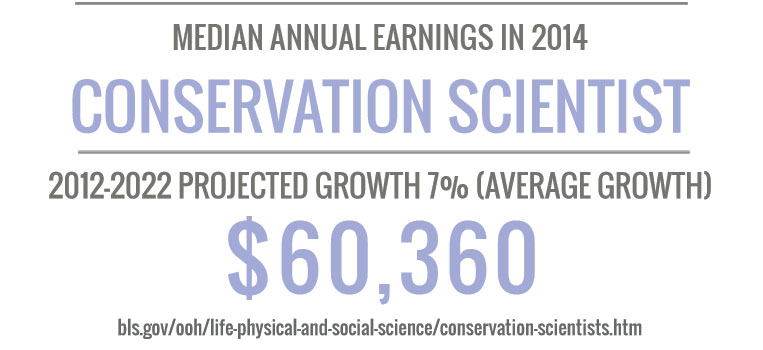Sponsored Online Programs Available

Online Masters in Environmental Policy
If you care deeply about the environment and wish to pursue a career in helping combat climate change and reduce the impact of humans on the planet, then pursuing a masters in environmental policy online may be right up your alley. In this type of degree program, students may increase their knowledge of the biological, geological, and physical forces that affect the environment, as well as how to apply that to public policy decisions about the environment.
Common Coursework for a Masters in Environmental Policy Degree Program
The typical coursework in Masters in Environmental Policy programs may combine classes on the social, economic, political, business and legal aspects that affect the environment and how those are used to develop green policies for private industries, national and international nonprofit organizations, and government agencies. In addition to coursework associated with environmental policy, students may be required to take coursework in academic and professional writing for graduate students and research methodologies. Some programs may also require a course in applied research in legal studies.[i] There might also be foundation courses that provide the basics on the topic and then courses in concentrations and electives that students may choose to take based on their interests and chosen potential career path. Potential courses in environmental policy graduate degree programs may include: [ii]
- Environmental Finance and Economics
- Environmental Protection Law
- Environmental Foundations and Principles
- Introduction to Ecology
- Environmental Project Management
- Sustainability: Policy and Practice
- Environmental Policy Analysis
- Integrated Environmental Systems
In addition to the coursework associated with the classes in the required curriculum, Masters in Environmental Policy online degree programs may require students to complete a research project or pass a comprehensive final exam.[iii]
Are There Any Concentrations Options in Environmental Policy Degree Programs?
Some master's degree programs may offer different concentrations within the environmental policy department. These may include environmental monitoring and analysis, ecological management, environmental planning, and environmental management. Concentrations in environmental monitoring and analysis may focus on assessing, quantifying, and monitoring environmental problems, and determining ways to fix them. Environmental management concentrations may focus on the business side of environmental policy, developing ways to balance economic, social, and environmental interest. Ecological management concentrations may focus on managing natural resources. Concentrations in environmental planning may focus on discovering solutions to specific problems, especially between the interaction of natural and man-made environments to find ways to minimize the impact. [iv]
What Skills May Be Beneficial for Environmental Studies Graduate Students?
Graduate students may benefit from strong research, writing, and reading comprehension skills, especially for any research projects they may have to complete as part of the degree program. Additionally, there are certain skills students may find beneficial for when they pursue work as a climate change analyst or other environmental planner. These include: [v]
- Critical thinking - assessing situations and determining the strengths and weaknesses of various solutions or approaches using reasoning and logic.
- Systems evaluation - reviewing a system to assess the performance and determine any potential actions to improve the performance or correct any issues.
- Decision-making - evaluating the advantages and disadvantages of actions and choosing the best one for the situation.
- Persuasion - convincing others to consider another option may be better.
- Public speaking - effectively conveying information to others through verbal communication.
- Negotiation - helping to reconcile the differences between two parties and come to an agreement.
- Problem solving - reviewing information to identify problems and determine the best solutions.
What Career Paths May People Pursue After Earning a Master's Degree in Environmental Policy?
To pursue some environmental science jobs, students need at least a Bachelor’s degree in a natural science, such as environmental policy. However, according the BLS, a Masters degree may be preferred for career enhancement [vi].
After earning a Master's degree in Environmental Policy, you may be able to pursue or enhance a career working as a climate change analyst or environmental restoration planner which are two types of specialties in the field. You may also pursue positions in private industries, national or international non-profit organizations, or government agencies that oversee the creation of policies or similar environmental health specialist career.[vii] According to the Bureau of Labor Statistics, the need for environmental scientists and specialists is expected to grow faster than average from 2014 to 2024. [viii] Although some positions may only require a Bachelor's degree, over half of those working as environmental planners, which may be considered a part of the category of environmental scientists and specialists, have a Masters degree. [ix] If you wish to help reduce humans’ impact on the planet and fight against climate change, you may find working in environmental policy a rewarding choice. Pursuing a Masters in Environmental Policy online may help you to gain the knowledge and education necessary to enhance your professional goals. To find out more, contact the schools you’re considering to request more information.
[i]kaplanuniversity.edu/legal-studies/environmental-policy-master-degree.aspx [ii]universitycollege.du.edu/epm/degree/masters/environmental-policy-online/degreeid/364#courses [iii]kaplanuniversity.edu/legal-studies/environmental-policy-master-degree.aspx [iv]advanced.jhu.edu/academics/graduate-degree-programs/environmental-sciences-and-policy/ [v]onetonline.org/link/summary/19-2041.01 [vi]bls.gov/ooh/life-physical-and-social-science/environmental-scientists-and-specialists.htm#tab-4 [vii]bls.gov/ooh/life-physical-and-social-science/environmental-scientists-and-specialists.htm#tab-2 [viii]bls.gov/ooh/life-physical-and-social-science/environmental-scientists-and-specialists.htm#tab-1 [ix]onetonline.org/link/summary/19-2041.02

